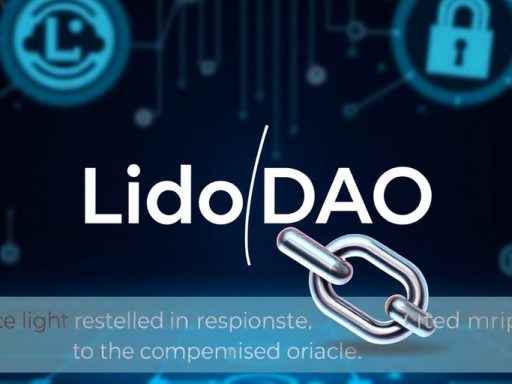Lido Finance, the leading liquid staking platform on Ethereum, has proposed a groundbreaking governance model that allows staked ether (stETH) holders to participate in protocol decisions. This initiative, known as Lido Improvement Proposal (LIP) 28, aims to enhance accountability and decentralization within the platform, especially as Ethereum’s staking landscape continues to evolve.
Key Takeaways
- Lido introduces a dual governance system for stETH holders.
- stETH holders can veto proposals approved by LDO tokenholders.
- A dynamic timelock mechanism allows for user intervention.
- The proposal comes amid a significant ETH price surge following the Pectra upgrade.
Overview of the Proposal
The LIP 28 proposal marks a significant shift in governance for Lido, which currently only allows holders of its governance token, LDO, to influence protocol decisions. Under the new model, stETH holders—those who stake ETH through Lido and receive a liquid token in return—will gain the ability to veto certain proposals that have been approved by LDO tokenholders. However, this veto power does not grant them the ability to unilaterally push proposals through.
The Dual Governance System
The proposed dual governance system is designed to increase the accountability of Lido as it continues to dominate Ethereum’s staking ecosystem, with over 25% of all ETH staked through its platform. The key features of this system include:
- Veto Mechanism: stETH holders can veto proposals that they oppose, providing a check on the decisions made by LDO tokenholders.
- Dynamic Timelock: A special timelock contract will be implemented, allowing stETH holders to intervene if they strongly disagree with a proposal. This mechanism is crucial for ensuring that users have time to react before decisions are executed.
- Safety Valve: If a significant number of stETH holders express discontent by depositing their tokens into a designated escrow contract, the timelock duration will increase, potentially blocking the execution of the DAO’s decision until all protesting stakers have had the chance to withdraw their ETH.
Implications for Ethereum Staking
The introduction of this governance model comes at a pivotal time for Ethereum, as the network has recently experienced a 30% price surge following the Pectra upgrade, which improved scalability and efficiency. This rally has drawn renewed attention to Ethereum-native applications like Lido, which play a critical role in capital flow and validator participation across the blockchain.
If approved, LIP 28 could set a new precedent for governance in the decentralized finance (DeFi) space, encouraging other protocols to consider similar models that include users—not just tokenholders—in decision-making processes. Lido’s competitors, such as Rocket Pool and Frax Ether, will likely be watching closely as this proposal unfolds.
Next Steps
The LIP 28 proposal is currently in the discussion phase, with a formal on-chain vote expected in the coming weeks. As the DeFi landscape continues to evolve, the outcome of this proposal could significantly impact how governance is structured across Ethereum’s staking ecosystem, potentially leading to a more inclusive and decentralized approach to protocol management.
In the wake of this announcement, LDO prices have seen a notable increase of 6.5% in the past 24 hours, reflecting growing investor interest in Lido’s innovative governance approach and the broader market’s positive sentiment towards Ethereum’s recent developments.








